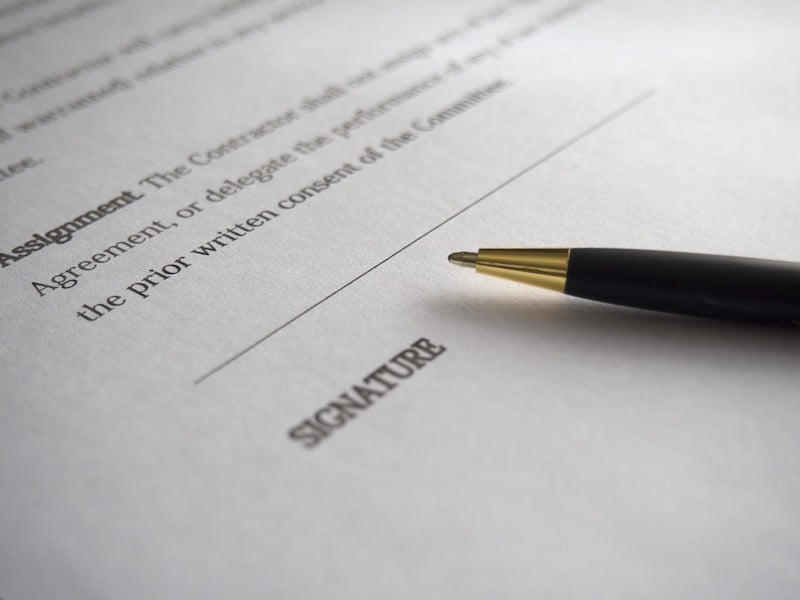How To Legally Protect Your Blog [Ep. 89]
By Jessie Festa. This episode on blogging legally contains affiliate links to trusted partners I think you’ll love!
Want to learn how to legally protect your blog?
Well, you’re in luck, as in this episode of The Profitable Travel Blogger Podcast, we’ll be going over how to blog legally to protect your business, your content, and yourself.
Our guest for the episode is Lisa Fraley, an attorney and legal coach. By the end of this episode, you’ll understand:
- Legal pages for your blog that are vital to have
- Blogging legal issues that are important to be aware of
- How to protect your blog content
- If you should trademark your blog name
- And more!
In short, if you’re confused about blogging laws and how to blog legally, this episode can help.
How To Legally Protect Your Blog [Podcast Episode Audio]
Click here to listen on Apple Podcasts/iTunes
Click here to listen on Spotify
Click here to listen on Amazon Music
Click here to listen on TuneIn
Free Travel Blogger Resource Library
To help you really jumpstart your blogging success, I’ve added 55+ blogging resources like printables, video tutorials, and workbooks into a FREE resource library for travel bloggers.
These resources are meant to help you grow your traffic, community, and income faster and with less overwhelm!
Legally Protect Your Blog With These Helpful Tools:
Legal Templates from Lisa Fraley. Looking for the best legal templates for blogs? Our guest for this episode, attorney and legal coach Lisa Fraley, offers a vast library of legal templates for business owners—from blog legal pages to client agreements to refund policies and beyond!
A few that would be of particular interest to creators wanting to ensure they have a fully protected blog include:
- GDPR-Friendly Privacy Policy Template
- Website Disclaimer Template
- Website Terms & Conditions Template
- Agreement For Hiring A Virtual Assistant
- Client Agreement Template For Photographers
In this episode, we also discuss some common questions, like:
- Should I trademark my blog name?
- What legal entity is best for my blog?
For help with these, you can also grab Lisa’s DIY resources:
- Is My Brand Trademark-Worthy?
- How Do I Get Started With Trademarking? Masterclass
- How Do I Know If I Need an LLC or an S-Corp? Masterclass
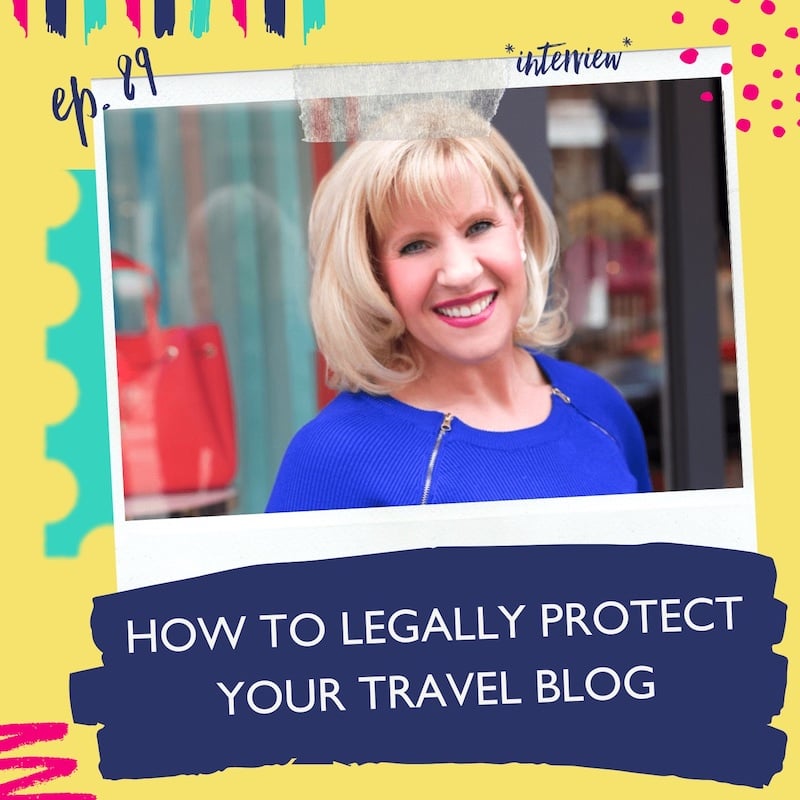
Tips For Blogging Legally [Episode Transcript]
The following is a summary of the podcast episode sharing how to blog legally. It is transcribed as best as possible, with paraphrasing included. For the full strategy on how to protect blog content and your business, make sure to listen to the audio version of the podcast above.
For many bloggers, one of the most confusing aspects of running a blogging business is understanding the legal side of things.
Of course, you want to make sure you’re covered and protected; but understanding what you’re supposed to be doing—especially when trying to decipher legal jargon—can be difficult.
Luckily, our guest for this episode, attorney and legal coach Lisa Fraley, is here to help. She will be breaking down the legalese to help us bloggers understand what we should be doing to get set up legally and protect our businesses.
1) Thank you so much for taking the time to share your tips! To start, can you tell us more about yourself, your business, and how you became an attorney and legal coach?
Yes, thank you so much for having me! I became a legal coach and attorney over a decade ago.
Actually, I became a lawyer about 30 years ago, but I combined my love of online business with law and became a legal coach for online business owners, health coaches, wellness coaches, travel bloggers, and people who were committed to a life of adventure and health and wellness.
I wanted to help them understand how to get legally covered in ways that are easy, approachable, and simple, and that don’t break the bank. Because the law can be intimidating, confusing, and frustrating.
My whole philosophy is to sort of infuse the law with love. Yes, it’s possible to do that and make it easier to understand so that people really can protect themselves and their businesses as they’re growing.
Over the past decade, I’ve helped thousands of online entrepreneurs and business owners, and I’m just excited and honored to be able to help more.

2) What legal considerations should bloggers keep in mind when starting a travel blog?
There are two main things you’ll want to watch out for:
Reducing liability and risk. When starting a travel blog, it’s essential to prioritize reducing liability and risk. This involves understanding potential legal pitfalls and taking proactive steps to mitigate them—like ensuring compliance with regulations and protecting your intellectual property.
Protecting your content. One of the most valuable assets of any travel blog is its content. Whether you’re sharing destination guides, travel tips, or personal travel stories, safeguarding your content against unauthorized use is important.
Taking steps to protect your intellectual property rights can prevent others from copying or plagiarizing your work, preserving its integrity and value.
3) Are there specific business structures that are more suitable for bloggers? How does this impact liability?
As a beginner in the blogging world, most individuals operate as Sole Proprietors. This means they’re essentially running their business as themselves without a separate legal entity.
While this setup is straightforward and requires minimal paperwork, it doesn’t offer any legal protection against personal liability.
As you grow and your travel blog starts generating significant income, transitioning to a Limited Liability Company (LLC) becomes advisable. Typically, when your business reaches around $50,000 in revenue, forming an LLC can provide essential asset protection.
An LLC separates your personal assets, such as your home or savings accounts, from your business assets. In the event of a lawsuit or financial challenge, your personal assets remain shielded from liability. This helps mitigate your blogger legal risks.
Keep in mind, there are some exceptions and considerations.
For individuals with substantial personal assets before launching their blog, such as retirement funds, investments, or properties, establishing an LLC from the outset may be a smart idea to help safeguard existing assets from potential business-related risks.
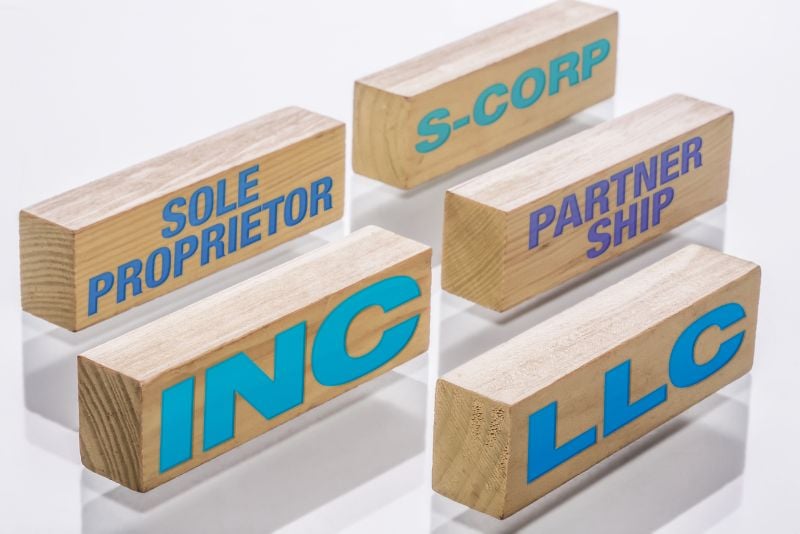
4) How important is it for bloggers to set up clear terms of use, privacy policies, and disclaimers on their websites? And, could you break down what exactly these legal documents should cover to keep bloggers protected?
There are three important website legal pages you should always have on your blog. These are typically linked in the footer of your website and include:
1. Website Disclaimer, which clarifies liability and content use (template here)
The Website Disclaimer is crucial for bloggers to disclaim liability and clarify the nature of the information provided on their websites.
It serves as a precautionary measure, ensuring that readers understand that the content is for informational and educational purposes only, not professional advice.
Additionally, the disclaimer should include provisions regarding testimonials, affiliate links, and external links to manage reader expectations.
2. Website Terms and Conditions, which protects intellectual property (template here)
Website Terms and Conditions, also known as Terms of Use or Terms of Service, are comprehensive legal documents that outline the rules and regulations governing the use of the website.
This document is essential for bloggers to protect their intellectual property, including text, images, and other content, from unauthorized use or reproduction. It should specify the permitted and prohibited uses of the website’s content, including reproduction, distribution, and modification.
Additionally, the blog Terms and Conditions should outline the consequences of violating the terms, such as legal action for copyright infringement.
3. Privacy Policy, which safeguards user information (template here)
A Privacy Policy is necessary for bloggers who collect personal information from visitors, such as names and email addresses for newsletter subscriptions or contact forms.
This document informs users about how their data will be handled, ensuring transparency and compliance with privacy laws. It should describe the type of personal information collected from users, how it will be used, and whether it will be shared with third parties.
Additionally, the Privacy Policy for bloggers should include details about cookies, analytics, and data security measures to ensure compliance with privacy regulations.
While you may need other legal pages for a website, these three are ones that all bloggers should start with.

5) One issue that many bloggers face is having their content stolen. What steps can bloggers take to protect their intellectual property, such as blog content and images?
As a blogger, safeguarding your intellectual property, including blog content and images, is important. Here are essential steps you can take to protect your intellectual property:
1. Use the copyright symbol. When it comes to blogging and copyright, the first thing you can do is display the copyright symbol (©) alongside your name or business name in the footer of your blog.
While this symbol alone does not grant copyright protection, it serves as a notice to visitors that your content is protected under copyright law.
2. Have Website Terms and Conditions. Implement comprehensive Website Terms and Conditions on your blog, explicitly outlining the permitted and prohibited uses of your content. This document serves as a legal agreement between you and your website visitors, clarifying ownership rights and usage permissions.
3. Register your content. To help protect blog content, consider registering it—including articles and images—with the U.S. Copyright Office. By registering your work, you establish a public record of ownership and gain additional legal protections against unauthorized use or reproduction.
4. Understand Copyright vs. Trademark. When bloggers wonder how to copyright a blog, or they may ask “Do I need to copyright my blog?”.
Usually, the first step to understanding this is to distinguish between copyright and trademark protection.
Copyright applies to original creative works, such as blog posts and photographs, granting exclusive rights to the creator. Trademark protection, on the other hand, safeguards branding elements like blog names, logos, and taglines associated with your blog’s commercial activities.
Here is some more information on US copyright laws.
5. File for Trademark Protection (if applicable). Should you trademark your blog name?
Well, if your blog name or associated branding elements are integral to your business and generate revenue, consider applying for trademark protection with the U.S. Patent and Trademark Office, though do speak with a legal professional to ensure you do this properly.
Trademark registration prevents others from using similar names or logos in a manner that could confuse consumers.
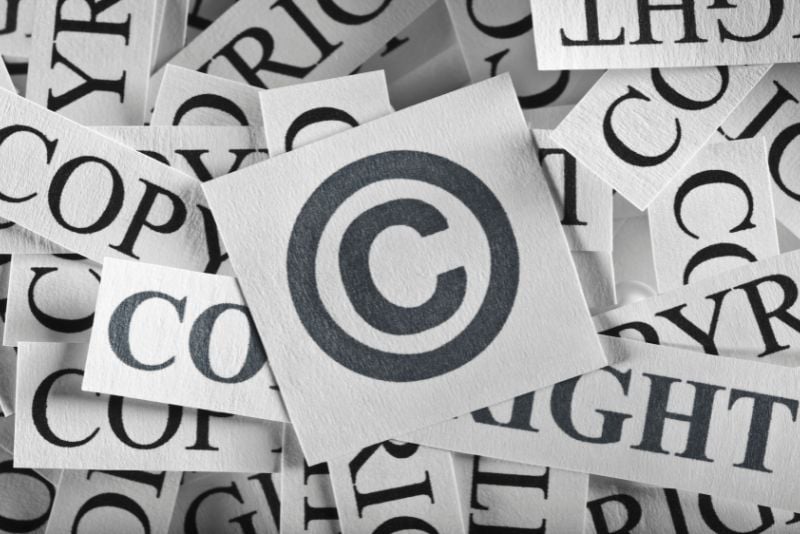
6) When it comes to trademarking, do you need a separate trademark for every different name, logo, and tagline within your business, or can you get one that covers your entire business?
Each distinct element of your business—such as your brand name, logo, tagline, and course names—typically requires its own trademark.
This is because these elements serve as separate brands within your overarching business entity.
Trademarks are granted based on uniqueness and non-conflict with existing brands. Therefore, a logo, tagline, and course name would be trademarked individually as they represent different aspects of your brand.
Trademark classes and strategy. Trademarking involves categorizing your trademarks into specific classes based on their intended use. For example, logos fall under one class, while taglines may fall under another.
Crafting a strategic approach to trademarking requires careful consideration of how each element is used and perceived by consumers. It’s essential to consult with a trademark attorney to ensure your trademark strategy aligns with legal requirements and maximizes protection.
Complexity of trademarking. While the process of filling out a trademark application may seem straightforward, the strategy behind it is intricate and nuanced.
Experienced trademark attorneys possess the expertise to navigate this complexity, helping you create a robust trademark strategy and avoid potential pitfalls. With their guidance, you can enhance the effectiveness of your trademark protection and minimize the risk of infringement.
Seeking legal guidance. Given the complexity of trademarking, it’s advisable to consult with a qualified trademark attorney. Their knowledge and experience can ensure that your trademark applications are comprehensive, strategically crafted, and legally sound to protect your brand and mitigate the risk of unauthorized use or infringement.
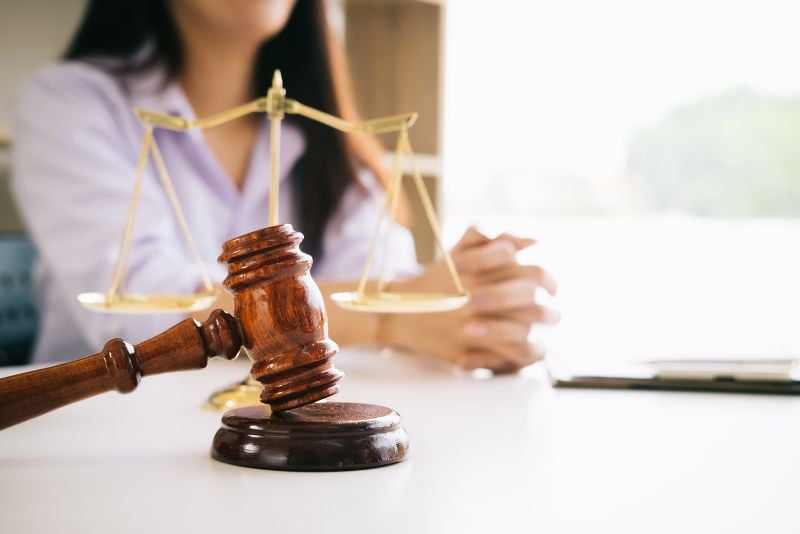
7) In terms of monetization, what should bloggers keep in mind when working with brands to ensure they’re following legal guidelines, especially when it comes to disclosures and contracts?
Here are some key considerations when it comes to blogging rules and regulations around brand collaborations and affiliate partnerships:
Written contracts for collaborations. When engaging in sponsored content collaborations, always use a written contract or agreement to outline expectations clearly. Specify details such as posting requirements, frequency, content guidelines, and disclosure obligations. Crystal-clear agreements mitigate disputes and ensure both parties understand their obligations.
Disclosure in affiliate partnerships. When it comes to affiliate marketing for travel bloggers, where you earn commissions by promoting products or services, transparent disclosure is paramount.
The Federal Trade Commission (FTC) mandates disclosure of financial relationships to maintain transparency and consumer trust. Proper disclosure informs your audience that you may receive compensation for endorsements, fostering transparency and credibility.
On my Legally Enlightened Podcast, I have an episode that can help you do this properly.
Legal compliance and ethical integrity. Non-compliance with disclosure regulations can have serious consequences—including penalties, platform bans, or legal action. By adhering to disclosure requirements, you demonstrate ethical integrity and commitment to legal compliance.
Moreover, ethical conduct attracts like-minded partners and fosters positive relationships built on trust and transparency.
Placement and visibility of disclosures. Ensure disclosures are conspicuous and prominently displayed near relevant content, such as affiliate links or brand mentions. Disclosures should be easily visible and legible to readers, fostering transparency and compliance with FTC guidelines.
Promoting ethical practices. Beyond legal obligations, ethical disclosure reflects your commitment to transparency and integrity. Disclosing partnerships will help you cultivate a reputation for honesty and authenticity, enhancing trust with your audience and potential collaborators.
8) How can bloggers manage writing negative reviews or criticism while staying within legal boundaries? And what steps can they take to safeguard against potential defamation issues when discussing individuals or businesses?
Addressing negative reviews or criticisms while safeguarding against defamation issues requires careful consideration of legal boundaries and ethical practices. Here’s how bloggers can manage these challenges:
Write truthful and fact-based reviews. When writing reviews or criticisms, ensure they are truthful, accurate, and based on factual evidence. Avoid making false statements that could harm the reputation of individuals or businesses. Truth serves as a strong defense against defamation claims.
Express honest opinions and critiques. Be respectful and focus on sharing personal experiences and observations. Opinions are protected speech under freedom of expression laws, but they must be presented as subjective viewpoints rather than objective facts.
Avoid malicious intent. Critiques should not be driven by malicious intent or aimed at deliberately harming a person or business. Maintain professionalism and integrity in your writing, refraining from personal attacks or unjustifiable criticisms.
Save documentation and evidence. Back up your reviews or criticisms with evidence, such as photos, screenshots, or firsthand accounts, to support your claims. Documenting experiences strengthens your position and credibility, especially if disputes arise.
Respond to criticism respectfully. If faced with negative feedback or criticism, respond thoughtfully and professionally. Address concerns or inaccuracies calmly and transparently, providing clarifications or additional context when necessary. Engage in constructive dialogue rather than escalating conflicts.
Consult with a legal professional. Consult with a legal professional specializing in defamation law to understand your rights and obligations as a blogger. Legal guidance can help navigate complex blog legal issues and mitigate risks associated with negative reviews or defamation allegations.

9) Are there legal considerations for bloggers when it comes to collecting and handling user data?
When it comes to collecting and handling user data, bloggers must adhere to legal guidelines to ensure compliance and protect user privacy. Here are some important considerations:
GDPR compliance. The General Data Protection Regulation (GDPR), implemented by the European Union, imposes strict requirements on data collection and processing.
Bloggers must ensure their processes align with GDPR standards, especially if they interact with users from EU countries. This includes obtaining explicit consent for data collection, providing clear information on data usage, and allowing users the right to access, modify, or delete their data.
Privacy Policy. Every blog should have a comprehensive Privacy Policy that outlines how user data is collected, used, and protected. The Privacy Policy should address GDPR requirements and provide transparency regarding data practices. It should also inform users about their rights regarding their personal information.
Cookie consent. Bloggers should implement cookie consent mechanisms to inform users about the use of cookies on their website—which can be done by using a free or inexpensive plugin.
Users should have the option to accept or reject cookies, and clear information about the purpose of each cookie should be provided. Compliance with GDPR also requires obtaining explicit consent for non-essential cookies.
Opt-out mechanisms. Users should be given the option to opt out of data collection and communications, such as newsletters or promotional emails. Bloggers must make it easy for users to unsubscribe or request to be forgotten, as mandated by GDPR. Opt-out links should be prominently displayed in communications and on the website.
Legal documentation. Ensure that all blogging legal documents—including the Privacy Policy, Terms of Use, and Cookie Policy—are GDPR-compliant. These documents should be easily accessible to users and regularly updated to reflect any changes in data handling practices or regulations.
Continuous compliance. Stay informed about updates to privacy regulations and adapt your data handling practices accordingly. Regularly review and audit your data collection processes to ensure ongoing compliance with legal requirements and best practices.

10) Thank you so much for sharing your wisdom! Before we sign off, can you let everyone know where they can find you?
- LisaFraley.com (website)
- Free “No Refunds” Guide (a must if you sell products!)
- Lisa’s Legal Templates (affiliate link)
Thank you!
Now I hope you enjoyed this episode. I hope you feel inspired and empowered to legally protect your blogging business.
Before you go, don’t forget to grab access to the free travel blogging resource library. There are a ton of resources in there on growing your community and increasing your blogging profits.
And of course, make sure to subscribe so you don’t miss future episodes sharing these bite-sized strategies for bloggers who want to turn their blogs into profitable full-time businesses.
Happy blogging!
Successfully Grow Your Blog With These Helpful Past Episodes:
How To Keep Your Blogging Bookkeeping & Accounting Organized
How To Plan Out A Year Of Content In One Week
How To Write Blog Posts Faster
How To Create Content That Sells & Converts On Social Media
How To Write SEO-Friendly Blog Posts From Start To Finish
How To Overcome Creative Block As A Blogger
How To Create Freebies For Your Blog
How To Get Featured In Media & Grow Your Visibility
Click here for all profitable blogging podcast episodes.
Connect With The Profitable Travel Blogger Podcast
Stay In The Loop
Do you want to get notified when new episodes publish?
Then make sure to opt-in for podcast email notifications sent to your inbox!
You can do that by clicking here.
Subscribe + Review (To Win A Prize!)
Love learning new blogging strategies to help grow your website traffic, community, and income?
Click here to subscribe on iTunes to be notified when new episodes publish.
I’d also be extremely grateful if you’d leave a review right here and let me know your favorite part of the episode or a takeaway you walked away with. By leaving a review, you help the show be seen by more people, helping the episodes to have a greater impact.
Bonus:
Each month, I’ll be choosing one reviewer at random to win a FREE seat inside one of my masterclasses.
Winners can choose from:
- How To Grow Your Blogging Income Through Facebook Ads
- How To Land Paid Press Trips As A Travel Blogger
- How To Make Money (Fast) With Affiliate Marketing
- How To Start A Tour Company In Your Own Backyard
- How To Start A Blog, Grow An Audience & Make Money
- Build Your Blogging Profit Plan Masterclass
Winners will be chosen at random from the reviews and will be notified via email, so make sure to send me — jessie (at) jessieonajourney dot) com — your email address so I have it.
What would you add to this guide on how to make your blog legal?
Enjoyed this episode on how to legally protect your business? Pin it for later!


